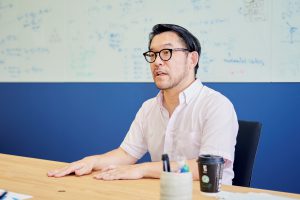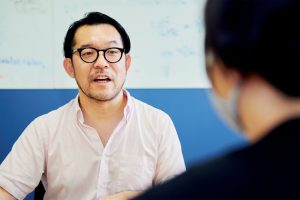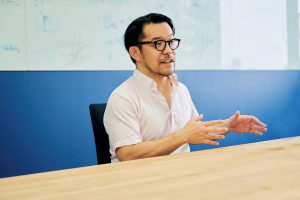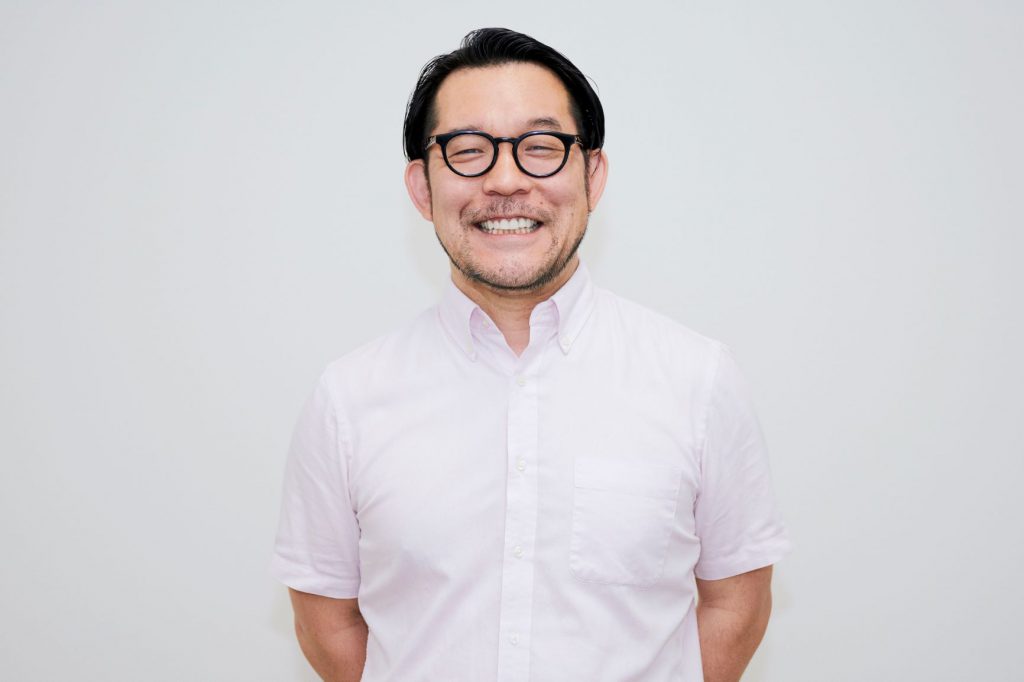I work in the field of empirical microeconomics and quantitative marketing, and conduct empirical research using microdata to study the behaviors of a wide range of economic agents, including patients, doctors, local banks, taxi drivers, voters, politicians, and consumers at vending machines. Although the topics may vary, the research methodology and empirical approaches I adopt are similar for both policy-related topics and business-related research topics. At GraSPP, we have students from a wide variety of nationalities and professions, who have a diversity of interests in various fields, and I hope that this environment helps them to broaden their horizons and acquire skills that they can apply in society.
 I enjoy GraSPP’s environment whereby we have students and professors from a wide variety of backgrounds having diverse interests. I hope that this environment and the stimulating atmosphere resulting from it help the students (and me) to broaden their horizons and acquire skills that they can apply in public policy and related fields.
I enjoy GraSPP’s environment whereby we have students and professors from a wide variety of backgrounds having diverse interests. I hope that this environment and the stimulating atmosphere resulting from it help the students (and me) to broaden their horizons and acquire skills that they can apply in public policy and related fields.
I work in the field of empirical microeconomics (industrial organization, political economics, and law and economics) and quantitative marketing. I conduct empirical research using microdata to study the behaviors of a wide range of economic agents, including patients, doctors, local banks, taxi drivers, voters, politicians, and consumers at vending machines.
I engage in both descriptive-type research that uses a causal inference approach to test hypotheses and a structural estimation approach that fully exploits economic models (such as game-theoretic models) to simulate the counterfactual impacts of yet unimplemented policies. At GraSPP, I teach a standard graduate-level microeconomics core course and a class that reads papers on the frontiers of political economics and studies how policies are determined as a result of the behaviors of politicians, voters, judges, lobbyists, and other actors.
 After graduating from college, I started my career as an aid officer for a Japanese aid agency out of a desire to work in the field of development. It was the time of the Asian financial crisis in the late 1990s, and I found myself strongly frustrated with the policies economists at international organizations were forcing on the countries I was working for. In search of the tools that would enable me to counter their arguments head on, I embarked on study for my PhD degree. For various reasons, I did not become a development economist after all, and have been working at business schools and a tech company after receiving my degree. Although policymaking and business may appear to have not much in common, the econometric methods used to evaluate government policies and business decisions are the same. I moved from a tech company to GraSPP, with the aim of once again focusing my efforts on policy-related research.
After graduating from college, I started my career as an aid officer for a Japanese aid agency out of a desire to work in the field of development. It was the time of the Asian financial crisis in the late 1990s, and I found myself strongly frustrated with the policies economists at international organizations were forcing on the countries I was working for. In search of the tools that would enable me to counter their arguments head on, I embarked on study for my PhD degree. For various reasons, I did not become a development economist after all, and have been working at business schools and a tech company after receiving my degree. Although policymaking and business may appear to have not much in common, the econometric methods used to evaluate government policies and business decisions are the same. I moved from a tech company to GraSPP, with the aim of once again focusing my efforts on policy-related research.
 GraSPP is a unique place that is not bound by the conventional image that people may have of the University of Tokyo, or of a graduate school in Japan. Students are from a wide variety of nationalities and professions, and their interests are similarly diverse. There is also vigorous international exchange through such programs as the Master of Public Policy, International Program, the CAMPUS Asia Program, and the exchange and double degree programs, with many classes being taught in English. (All of my classes will be in English next year.) It is perhaps only a slight exaggeration to say that you could almost forget that you are in Tokyo. The wide variety of backgrounds is not limited to the students either—the teaching staff are similarly diverse. The atmosphere here is lively and motivated, and there is also a sense among students and staff that efforts must be made to sustain that atmosphere.
GraSPP is a unique place that is not bound by the conventional image that people may have of the University of Tokyo, or of a graduate school in Japan. Students are from a wide variety of nationalities and professions, and their interests are similarly diverse. There is also vigorous international exchange through such programs as the Master of Public Policy, International Program, the CAMPUS Asia Program, and the exchange and double degree programs, with many classes being taught in English. (All of my classes will be in English next year.) It is perhaps only a slight exaggeration to say that you could almost forget that you are in Tokyo. The wide variety of backgrounds is not limited to the students either—the teaching staff are similarly diverse. The atmosphere here is lively and motivated, and there is also a sense among students and staff that efforts must be made to sustain that atmosphere.
I look forward to learning and conducting research with the students and other community members of GraSPP to create new knowledge together.



